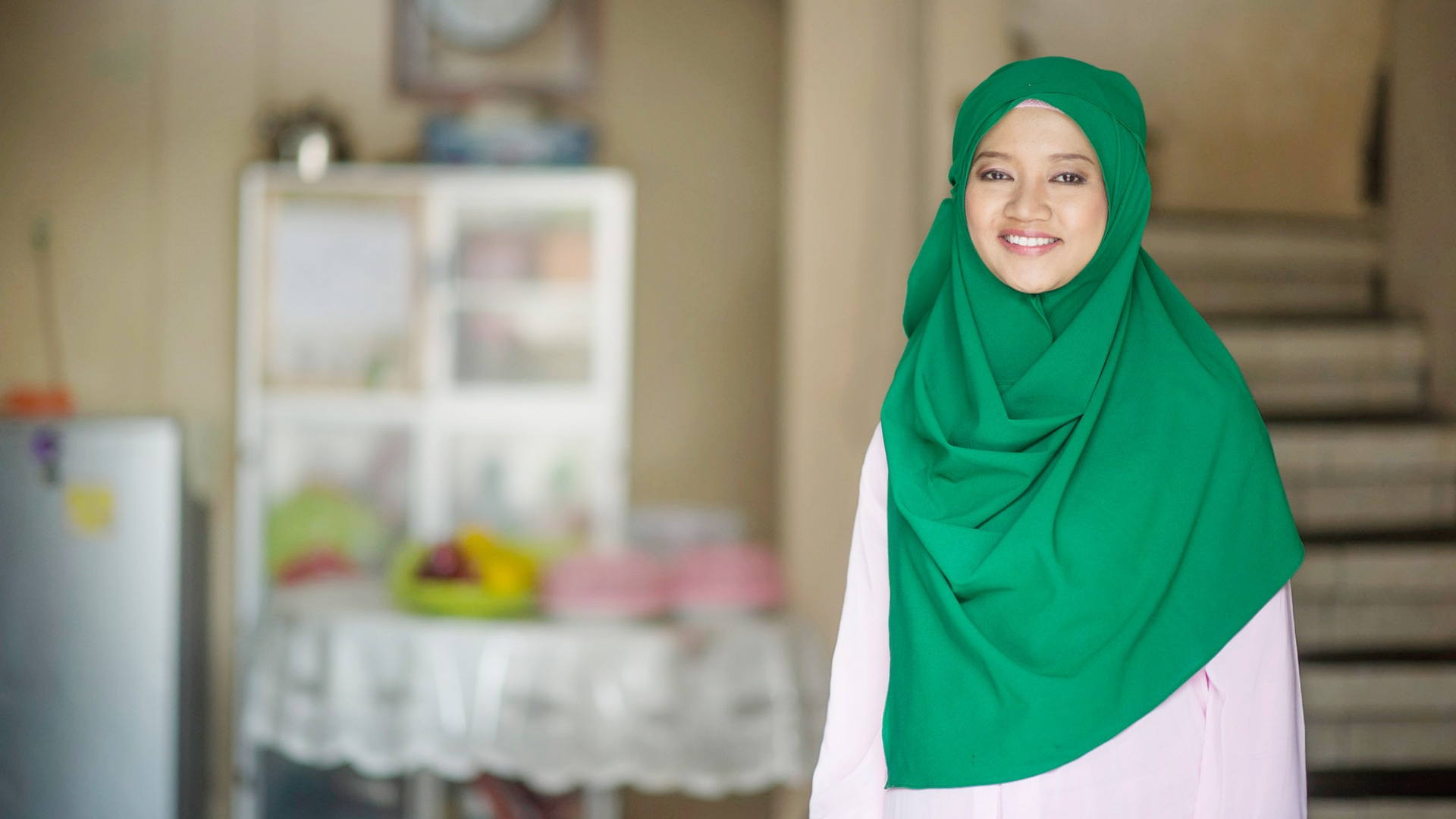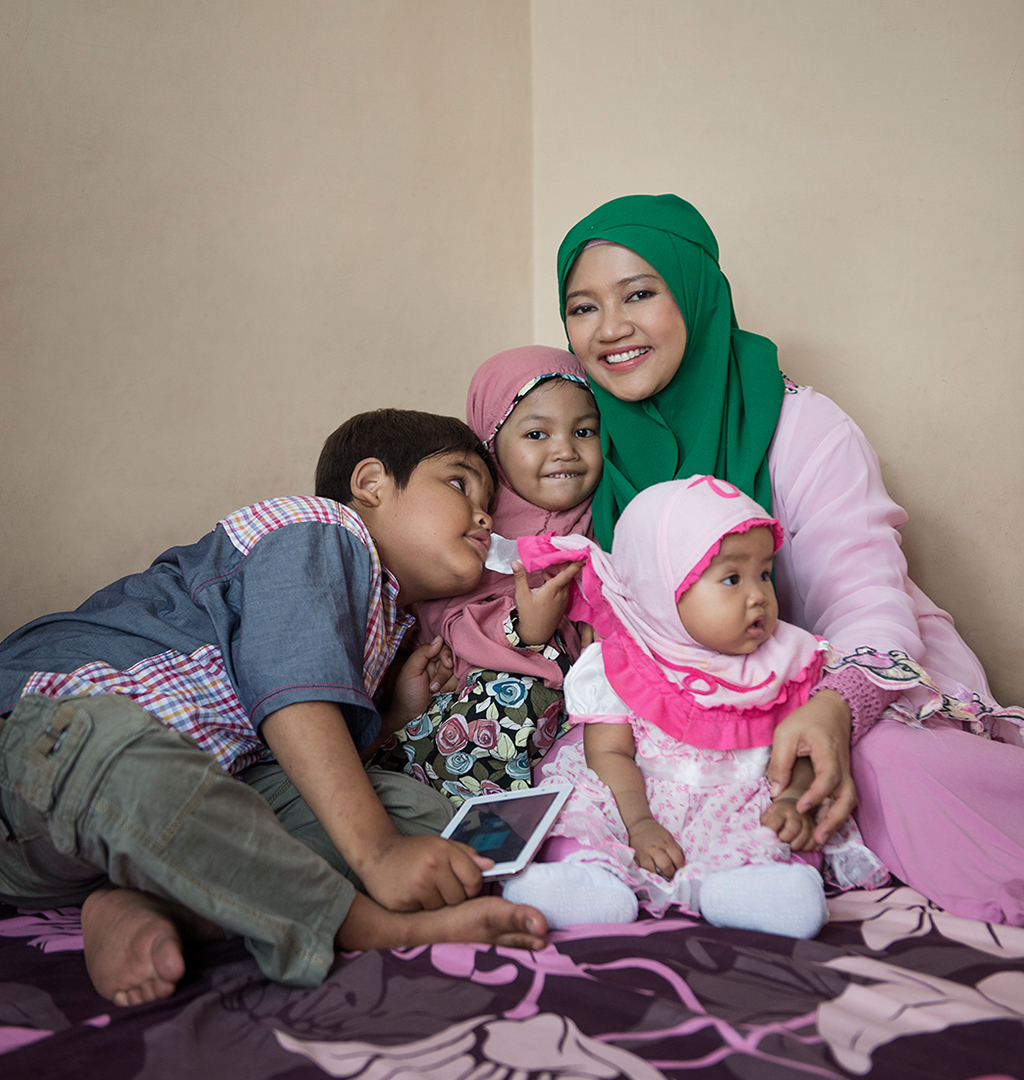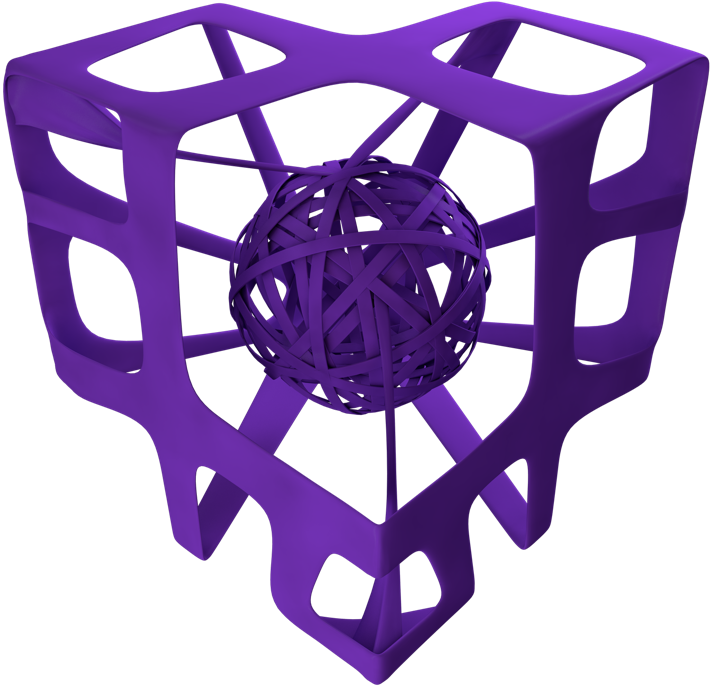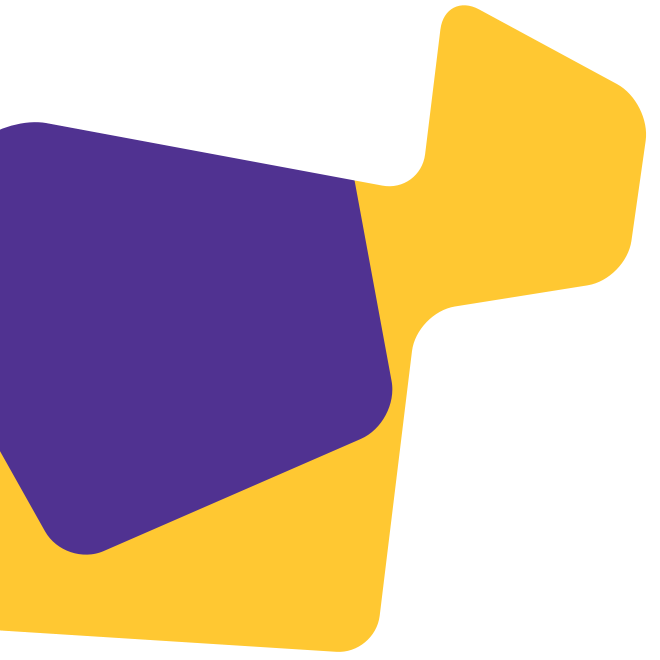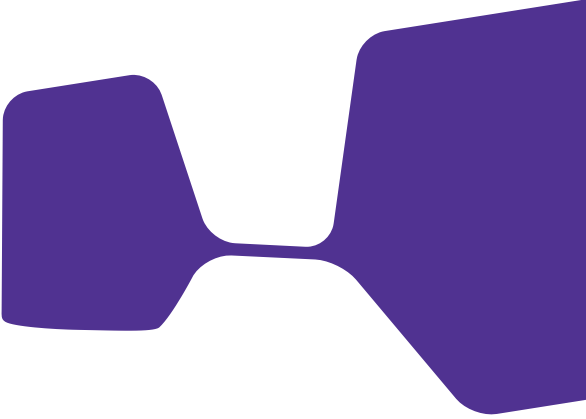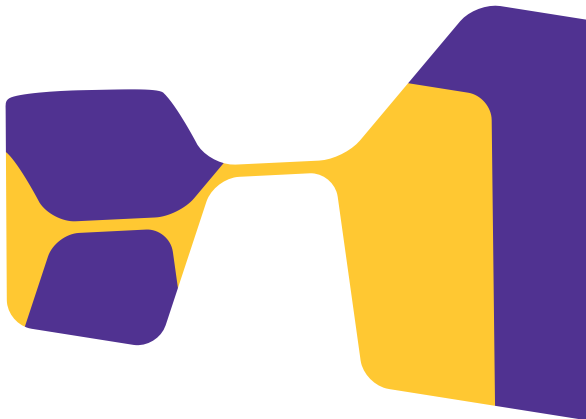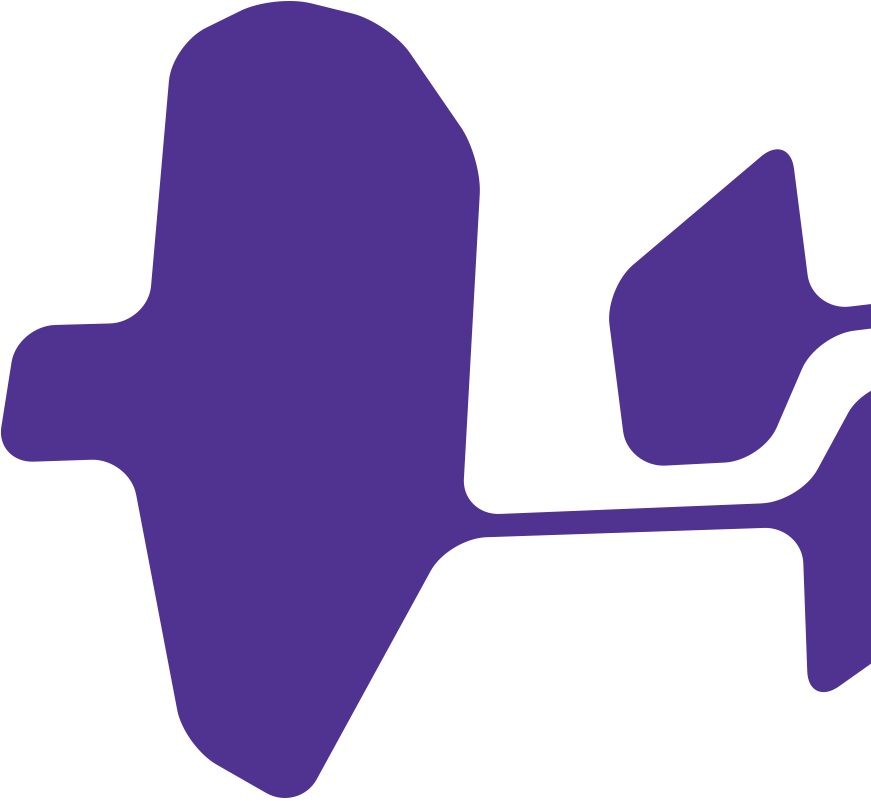Interview WITH Dr. Shinta Primasara
Dr. Shinta Primasara (36) from North Sumatra, Indonesia, is the mother of three children. Muhammad Harits Zaki (10), Amirah Fatimah (4) and Azizah Aisyah (6 months) all suffer from hypothyroidism. Even though Primasara is herself a physician, it took a long time to find a diagnosis for her first child and get proper treatment.
Interview
Dr. Primasara, what made you think that something was wrong with your oldest child Muhammad Harits?
As a baby, my son initially seemed very healthy; up to six months old, his progress was normal for his age. He would occasionally come down with a fever or diarrhea, but nothing that would have worried me. I noticed something was wrong when he was nine months old. Harits could not sit up on his own; but his pediatrician still didn’t think anything was seriously wrong. Later, our son’s development became regression, and we took him to see a neurologist to figure out the cause. Harits was diagnosed with thyroid hormone deficiency (hypothyroidism). We then consulted an endocrinologist, who prescribed hormone thyroid treatment.
How is your son doing today?
The hormone deficiency caused by hypothyroidism impacts brain development, which is why my son's mental development was delayed. He has severe learning difficulties, cannot do things on his own and his hearing is impaired so that he can only hear low-pitched sounds.
You are a doctor yourself. How did you take the diagnosis?
At first I was shocked when I learned of the diagnosis – it had never even crossed my mind. This disease was rarely heard of when I was in college. I didn’t expect it, as Harits’s early development was normal. I also didn’t know that I suffered from hypothyroidism when I was pregnant. Screening for hypothyroidism is thus essential to diagnosing the disorder in newborns.
Your daughters were also diagnosed with a thyroid disorder, but luckily this happened right after birth.
I have learned a lot about thyroid disease and now understand it. It is quite difficult to identify clinical symptoms in newborns, as they do not appear immediately. In both of my pregnancies with my daughters, I received treatment for hypothyroidism. They were both screened for hypothyroidism four or five days after birth and were subsequently also diagnosed with the disease. Thanks to prompt treatment, they are both developing normally, for which I am very grateful.
Indonesia: Thyroid awareness
Indonesia has one of the highest levels of thyroid disorder in Southeast Asia. Yet only 1% of patients receive proper treatment. Children particularly suffer from the effects of this disease because the hormonal imbalance can impact their development.
We want to educate the public on thyroid disorders. Since 2014, we've been working with the Indonesian government to accomplish exactly that. Within the “Set yourself free from Thyroid” campaign, we are hosting events such as symposia, lectures and seminars for physicians and the public. Above all, however, we’re working to promote hypothyroidism screening of newborns across the country. Although decreed a standard procedure by the Indonesian government in 2014, implementation so far has been slow. Our experts are currently partnering with the Indonesian Pediatric Society to develop a manual on pediatric thyroid disorders that will help pediatricians to diagnose the disease.
In 2016, we reached approximately 20 million people through our worldwide thyroid awareness campaigns. More than 14,500 individuals received thyroid checkups.
The control tower of the metabolism
The butterfly-shaped thyroid gland is the primary regulator of the body's metabolism. Its main job is to produce thyroid hormones – messengers that are needed to make sure the tissues and organs of the body work properly and at the right speed. Through its hormones, this gland controls all bodily tissues and organs. A thyroid disorder means that the thyroid gland is either producing and releasing too much (overactivity/hyperthyroidism) or too little (underactivity/hypothyroidism) thyroid hormone into the bloodstream, which can accelerate or slow down one's metabolism. There are many possible symptoms. For example, some people who suffer from thyroid disease may experience excessive sweating or restlessness, while others may be fatigued and depressed.
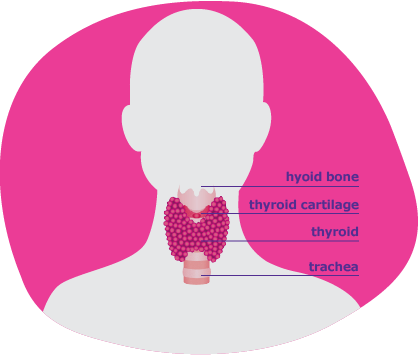
“Catching butterflies” – across the globe!
Merck KGaA, Darmstadt, Germany is working to raise global awareness of the thyroid gland and possible disorders. Hand in hand with Thyroid Federation International (TFI), we've been supporting International Thyroid Awareness Week for the last nine years. Held in May every year, the 2016 campaign was called “Catching Butterflies: Spotting the Symptoms of Thyroid Disorders in Children”. A survey we commissioned in 2016 revealed that 84% of mothers worldwide could not correctly identify typical symptoms of thyroid disorders in their children.
In response, we collaborated with TFI to develop a film, a children's book and an informational brochure for parents. These tools feature two butterfly cartoon characters called “Hypo” and “Hyper”, who explain the symptoms of hyperthyroidism and hypothyroidism. Worldwide, 34 of our sites supported this campaign through initiatives such as social media activities, drawing contests, info fairs, and free checkups for children.
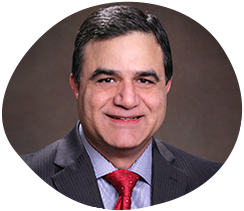 “Millions of people around the world suffer from some form of thyroid disease. Most of them, however, are unaware of their condition. They grapple with health limitations that could easily be alleviated with the right treatment. Thyroid Federation International aims to change this and is working to raise awareness of thyroid disorders.”Ashok BhaseenPresident of Thyroid Federation International
“Millions of people around the world suffer from some form of thyroid disease. Most of them, however, are unaware of their condition. They grapple with health limitations that could easily be alleviated with the right treatment. Thyroid Federation International aims to change this and is working to raise awareness of thyroid disorders.”Ashok BhaseenPresident of Thyroid Federation International
Greater awareness
Initially, many diseases go undetected. People often know too little about diseases such as diabetes, multiple sclerosis (MS) and cancer. Our company has in-depth knowledge and expertise regarding these diseases. We therefore run global awareness campaigns in which we work closely with various partners such as patient advocacy groups. Many of our employees get involved in these initiatives as well. In addition to external campaigns, we also regularly organize awareness campaigns within our own company.
In 2015 and 2016, we organized 17 awareness campaigns around the world on diseases such as cancer, diabetes, multiple sclerosis, and thyroid disorders.
Dispelling the stigma of infertility
Since launching our More than a Mother campaign in 2015, we have been working in partnership with ministries of health and social welfare, academia, parliaments, and fertility societies to raise awareness about infertility prevention and break the stigma around infertile women in Africa. This initiative originally launched in Kenya, was expanded in 2016 to Uganda, Nigeria, Tanzania, Ghana, Central African Republic, and Ivory Coast, where we are providing practical training for embryologists and fertility specialists in an effort to build fertility care capacity on the continent. We are also helping governments define policies to improve access to safe and effective fertility care. In 2016, we furthermore helped more than 1,000 affected women to set up their own business and thus achieve financial independence. The More than a Mother campaign is championed by the first ladies of Nigeria, Central African Republic and Sierra Leone. It is publicized through social media to spread awareness of the stigmatization endured by these women and share their stories.
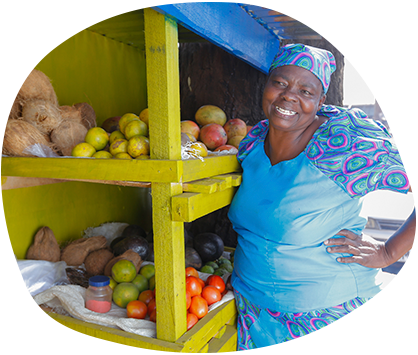
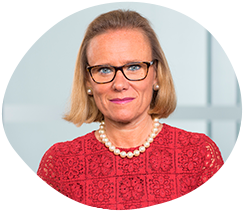 “Advocating for better health creates a ripple effect, uplifting entire families, communities and future generations. We are proud to support disease awareness campaigns around the world in order to take medical education in developing countries to the next level. By promoting global access to health services, we are taking a significant step toward achieving the United Nations Sustainable Development Goals.”Belén GarijoExecutive Board member and CEO Healthcare
“Advocating for better health creates a ripple effect, uplifting entire families, communities and future generations. We are proud to support disease awareness campaigns around the world in order to take medical education in developing countries to the next level. By promoting global access to health services, we are taking a significant step toward achieving the United Nations Sustainable Development Goals.”Belén GarijoExecutive Board member and CEO Healthcare
Educating the public in rural India
With our Su-Swastha project, we are working to improve the quality of healthcare in rural India. We educate both the public and physicians in these regions on commonplace health problems and how to treat them. For instance, experts provide information on coughs and childhood illnesses, explaining ways to prevent them. In addition, we offer free check-ups for patients and continuing education for physicians.
